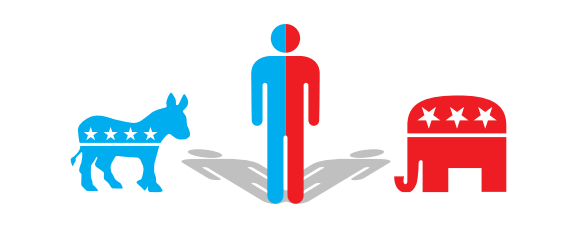 Seventy four percent of all internet users interact on social networking sites. This is a number that should get the attention of campaign managers. In the last few years forward thinking marketers, digital managers, and communications professionals have known that they can’t ignore social media. What has been less than clear is how much time and resources a business or campaign should put into social media — and how far social media will take you and your campaign.
Seventy four percent of all internet users interact on social networking sites. This is a number that should get the attention of campaign managers. In the last few years forward thinking marketers, digital managers, and communications professionals have known that they can’t ignore social media. What has been less than clear is how much time and resources a business or campaign should put into social media — and how far social media will take you and your campaign.
Since the social media revolution, many studies have been done to quantify their actual effect on elections. The first thing people want to know is, “Well, of course people use social media. Are there political applications in the real world?” In a white paper titled “Social Politics: The Impact of Social Networking on Political Campaigns” published by Voter Gravity, Dr. George Hawley, a professor of political science wrote about this exact topic. The in depth piece explored studies on social media and voter canvassing and revealed some remarkable statistics, including:
Get out the Vote
During the 2012 presidential elections, twenty-two percent of registered voters used a social media site such as Facebook or Twitter to let others know how they voted.
According to a 2012 survey, thirty percent of registered voters reported that they were encouraged to vote for either President Obama or Governor Romney by friends and family on a social networking site.
In addition to this, the numbers get even more pronounced among those under the age of 30:
-
45% of registered voters who used social media let others know they had voted
-
34% actively encouraged their friends to vote through social media
The real question however is: Are people more likely to vote when their friends encourage them? The answer appears to be yes. Studies devoted solely to this question have shown positive correlations between voter turnout increase and increased messages about having voted from peers.
Inform Your Voters
An overwhelming majority of Americans between 18 and 24 use the internet as a source of news:
-
48% use social media for news at least once a week
-
34% of all voters claimed to use social media for information on the elections.
Once again, the numbers spike for voters under the age of 30. The percentage of respondents under 30 who claimed to use social media for election information was 50.26%.
However, studies have not found significant impact in other areas of politics, such as:
Increase Political Involvement in National Politics
There is little evidence that a candidate’s use of social media will increase political involvement in any significant ways. The people who get involved were probably going to get involved anyway.
A 2012 study showed that presidential candidates social media presence, or lack thereof had very little correlation with voter behavior or likelihood that an individual voter would donate to the campaign.
Convince Voters to Change Their Vote
There is little evidence that social media is effective at convincing voters to change their opinion. There is conflicting evidence that social media use is effective at convincing undecided voters.
In conclusion, social media has real application in politics. What is almost equally as obvious, however, is that social media is a supplementary measure to more traditional, boots-on-the-ground approach to campaigning.
